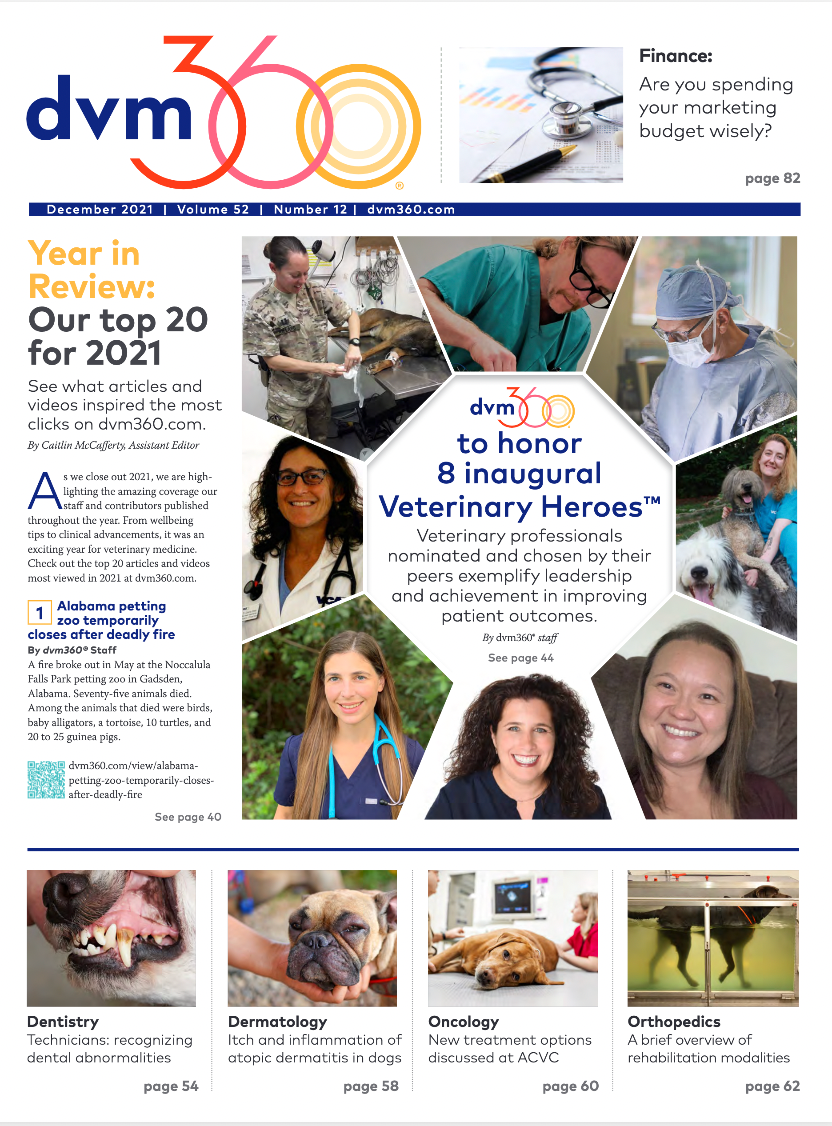Commentary: Should your practice have a vaccine mandate?
Requiring COVID-19 vaccinations can keep your team, your clients, and your business safe.
This is a challenging time for our industry, and veterinary professionals need to decide the best new normal for teams and clients. In the early days of the COVID-19 pandemic, we operated from a panic, or reactionary, mode. We were doing what was best at that moment, often changing standard operating procedures every day based on the latest scientific information or how many team members were exposed to the virus or had fallen ill. We survived those early days and must now take a proactive approach moving forward.
For many of us, proactive means updating or creating new standard operating procedures (SOPs). Curbside service, once haphazard, is now a well-orchestrated SOP because some clients love the service. Cleaning is now sanitizing to guard against spreading COVID-19. Masks are part of the standard uniform. Safety protocols and other emergency response steps have been added to the employee handbook. Yet, even with our best efforts, COVID-19 still sneaks into our teams.
Each time COVID-19 makes an appearance among team members, businesses are crippled—hospitals are shut down for testing and quarantine or limited to skeleton crews, and appointments are canceled or rescheduled weeks to months later. Pets and owners are negatively affected. Therefore, practices must add another tool to their COVID-19 SOPs: a vaccine mandate.
COVID-19 vaccines are proving to be safe and effective against preventing severe illness and death. From the business perspective, the best part is that fully vaccinated individuals do not have to quarantine after exposure unless they have a positive test. According to the CDC, if an employee comes to work sick or calls in that they have tested positive, each team member who has been exposed and is fully vaccinated only needs to be tested 5 to 7 days after the exposure and wear a mask for 14 days or until the results come back negative. If symptoms develop, they should isolate and get tested immediately.
If the veterinary practice has fully vaccinated team members, it means no more closing the doors while everyone waits in line at the testing sites. It means no more operating with a skeleton crew of only unexposed team members. A fully vaccinated team is an absolute game-changer from a customer service perspective, and the importance of operations cannot be emphasized enough.
What is a practice owner/manager to do? Consider the impact that recurring closures have on the clients, patients, and your bottom line. If you have a small staff, do you have to close when there is an outbreak while awaiting test results? Are most of your team members unvaccinated? Do you have team members who are specifically at risk of a severe case of COVID-19 if infected? Would you prefer that any new hires already be vaccinated?
If you answered yes to these questions, then a vaccine mandate may be right for you. When considering a vaccine mandate for your veterinary practice, pay attention to these key points:
- You should consult with your attorney to help you formulate the mandate.
- Your vaccine mandate must be written down.
- Receipt of the protocol must be signed by each member of the team.
- The rules must be standard and apply to everyone.
- There must be exemption protocols in place to allow for religious and medical issues.
- Employees must give proof of their vaccination status, but it may not include other medical or genetic information.
“Employers should consult with an attorney who is familiar with employment laws in their area before enacting vaccine mandates,” notes Betsy Choder, a veterinary legal consultant and transactional lawyer in Atlanta, Georgia. “In efforts to minimize the potential for future lawsuits or regulatory challenges, retain the services of an attorney to draft your workplace policies. Not all states permit mandatory vaccine policies to be implemented in the workplace—and, similarly, an individual county or city might have its own applicable laws related to COVID-19 requirements in public and/or private workplaces.”
There are individuals choosing not to be vaccinated. The practice must decide what action will be taken when a team member (regardless of position) refuses to follow the vaccine mandate. Is weekly COVID-19 testing an option? Who will pay for the test? Is there a remote job position for that individual? Will the individual be terminated? These answers must be decided when the vaccine mandate is rolled out to the team—and the practice must apply the policy uniformly.
However, the situation is not as bad as one might think. Yes, there is the risk of a few team members quitting, but there is also an advantage of attracting team members who value this safety effort. In one practice, a team member left because they did not want to follow the vaccine mandate. When the job was advertised, it attracted a large number of applicants because the candidates were interested in working for a business with a vaccine mandate. Interestingly, the team member who quit returned a few weeks later—vaccinated and inspired to embrace the practice’s core values.
If COVID-19 has taught us anything it’s that we are a tough group of professionals who understand the essential services we provide to both pets and owners. We can pivot and make sudden changes in how we deliver medical care and client service when the need arises. We care about people just as much as we care about animals. Moving forward, a practice must understand all the available tools to create critical SOP changes—changes that reduce the spread of COVID-19 and those that guide management on business operations.
Weigh your options. Educate yourself. Do your research. Your team is looking to you to keep them and the business safe.
